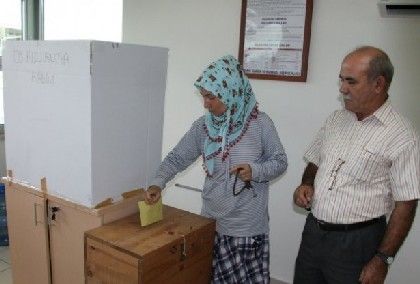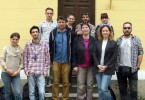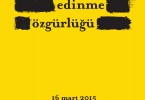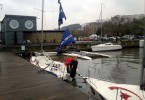Niyazi Dalyancı
Justice and Development Party’s (AKP) 26-article constitutional amendment package received the “yes” vote from 58 percent of the voters on Sunday’s referendum while 42 percent said “no.” However, there are signs that referendum results would not be able to stop the bickering between rival sections of the Turkish society over the amendments.
Geographically voters in the Aegean and Mediterranean provinces and Thrace rejected the AKP proposals while provinces in Central Turkey and the Black Sea area appeared to support them. Southeastern provinces dominated by Turkey’s Kurdish citizens presented a different picture with low participation rate that might have been the result of Kurdish Peace and Democracy Party’s (BDP) boycott call and a very high rate of “yes” votes that went up to 90 percent in some constituencies. Hakkari, Turkey’s southeasternmost province that borders both on Iraq and Iran registered the lowest participation with only 9 percent. In Diyarbakir those who went to the balloting stations were only 35 percent of the total number of voters.
Prime Minister Recep Tayyip Erdogan who voted in Istanbul, went to his local party headquarters on the banks of the Golden Horn after watching the FIBA World Cup final between the U.S. and Turkish national basketball teams along with President Abdullah Gul, Foreign Minister Ahmet Davutoglu and Egemen Bagis, minister in charge of European Union affairs. Turks lost the game 61 – 84 winning the runner up position after the US in the world championship.
As the final ceremony was taking place, a group of spectators protested Erdogan and his ministers shouting slogans in support of secular Turkey. But this unpleasant incident seemingly did not perturb the prime minister who arrived at the AKP headquarters in a jovial mood to deliver a speech both to his cheering supporters and reporters. Erdogan in a reconciliatory tone said: “Today both those who have said yes and those who said no have won.”
He went further on to say if he had offended anybody by his harsh comments addressing political rallies, “I am apologizing from them.”
Erdogan also said that his party will begin preparations for drafting a brand new constitution. He turned to Burhan Kuzu, the AKP Chairman of the Parliamentary Constitutional Committee and said “Begin work no later than tomorrow.”
Erdogan recited a long list of organizations, including political parties in opposition and those who worked for him thanking them. He also did not fail to send his greetings to “those across the Atlantic who lend their support.” He was referring to Fethullah Gulen whose supporters actively worked in Erdogan’s ‘yes’ campaign.
CHP leader fails to vote
Kemal Kilicdaroglu, the new leader of the main opposition Republican Peoples Party (CHP) failed to vote because he and his associates failed the check the voter lists in Istanbul. He explained that when he became a mayoral candidate for Istanbul in the 2009 local elections he had moved his residence to this city and voted here. “Outside my knowledge they have removed my name from the voters list,” he said when he moved to Ankara. He admitted that it was a mistake on his part not to check the lists “in the heat of campaigning.”
A journalist at a television debate program on the night of referendum quipped, “Look at the guy who is bidding for running the country, he can’t even use his vote,” thinking that his microphone was switched off.
Complaints filed against instigators of September 12, 1980 military coup
With the constitutional amendments, the Article 15 that protects the junta members and bureaucrats who served under them following the military coup on September 12, 1980 has been rescinded. Groups belonging to various associations filed complaints in Istanbul, Ankara and Bursa to the prosecutors to initiate legal action against those who were under the protection of Article 15. More groups are expected to follow the same line, despite legal arguments, that 30 years that have lapsed since the coup bars any legal action against the culprits.
Opposition will scrutinize AKP’s actions
A major allegation leveled against the amendments by their opponents was that the whole scheme was to put the entire mechanism of jurisdiction in the country under the control of the government thus undermining the principle of separation of powers.
The amended constitution gives the government the authority to change the composition of the Supreme Board of Judges and Prosecutors (HSYK) within 30 days. The amendment increases the number of members of the board from five to 22 and establishes a special electoral system under which 10 members will be elected by
Judges and prosecutors, four members nominated by the president and the rest will be elected by the Supreme Court and other high courts.
Opposition spokesmen said they will watch closely all these nominations in order to prevent AKP to fill in the HSYK with members who would toe the government line.
The HSYK is the organ that is responsible for appointments, promotions and the application of disciplinary rules regarding the judicial personnel.
Although the people have given a firm “go ahead” to AKP’s constitutional changes, Turkey will continue to witness heated arguments over especially the functioning and composition of the legal system in the country.







